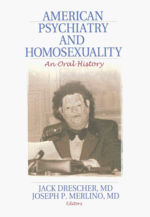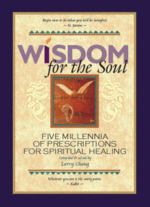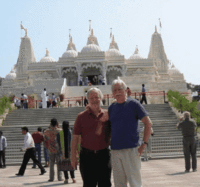 Book Review
Book Review
American Psychiatry
and Homosexuality:
An Oral History
by Jack Drescher, MD and Joseph P. Merlino, MD, Harrington Park Press, ISBN: 978-1-56023-738-6
299 pages, $29.95
Reviewed by Joe Kort
Growing up Gay or Lesbian, one of our greatest losses – if not the greatest – is not having any rich stories and instructive tales passed down to us by those before us. Usually parents, grandparents, aunts, uncles and other elders pass on family jokes, fables, and stories about their pasts and our own. They tell us things like where nicknames came from, why last names changed after arriving from the old country, how and why their parents behaved and believed in the old days family lore and family history.
But now bookstores are offering an increasing number of titles archiving past events and the recent evolution of homosexuality. As a Gay psychotherapist, I have an interest in the history of how my profession handled — and mishandled – homosexuality. American Psychiatry and Homosexuality: An Oral History provides an excellent resource for regaining and more fully understanding this knowledge. This book contains numerous interviews of those who pioneered the de-pathologizing of homosexuality and helped remove it as a mental disorder from the Diagnostic and Statistical Manual of Mental Disorders, the reference source mental health professionals use to diagnose the clients we treat.
Each time I sat down to read this book, I chose to imagine that I was sitting at the feet of those being interviewed, and that they were telling me stories the way my grandmother and other family elders did with me as I grew up — stories that intrigued me, angered me, made me cry and made me laugh out loud.
Without this kind of oral history, our pasts would be lost, individually and collectively. This book sets the Gay record straight.
The cover illustration is a haunting photo of a man wearing a mask that resembles something from the horror movie, The Hills Have Eyes. Under that mask is Dr. John Fryer, M.D., a psychiatrist who, in 1972, spoke at a psychiatry panel on homosexuality, appearing as “Dr. H. Anonymous,” disguising his true identity — and even his voice. In those days to come out as a Gay psychiatrist meant a ruined career.
Fryer came to this meeting to de-pathologize homosexuality, telling about those Gays and Lesbians who were not troubled and did not seek out therapy. John Fryer took the first public step for us all, clinicians and laymen alike.
I knew that homosexuality was removed from the DSM in 1973, but was aware that Gay political pressure played no role in the APA’s decision to have it removed — as anti-Gay therapists Drs. Irving Bieber and Charles Socarides later claimed. In reality, according to transcripts in American Psychiatry and Homosexuality: An Oral History, the decision was “influenced by the weight of scientific studies” and a vote by the APA’s Board of Trustees, with two abstentions.
I first learned about Bieber when I was in college, writing a paper on why homosexuality was a disorder and should be considered so. I was, then, in my own early stages of coming out and, not wanting to be Gay, sought out literature to support my denial and write that paper. I still have that paper, to keep and archive my own personal journey.
Just as the pioneers transcribed in this book have something to teach those of us coming up — and out — behind them, so do we, the next generations, have something to teach them as well. In an interview, Charles Silverstein, Ph.D., psychologist and well-known author of The Joy of Gay Sex, speaks out against other Gay therapists who, he says, “condemn other Gay people’s sexual behavior” by diagnosing sexual compulsivity. He suggests that Gay therapists using that diagnosis are doing the same to other Gays as heterosexual therapists did, which is to “diagnose these people as suffering from some illness because you’ve identified with society’s rules.”
On this area of expertise, Silverstein could not be further from the truth. Or at least now we know there are gradations and differentiation. As one who specializes in treating sexual addiction and compulsivity, I use this diagnosis very carefully with men and women, both Gay and straight, who suffer from compulsive sexual acting-out, without experiencing pleasure. This is not based on my “moral views” as Silverstein claims, but their own recognition of compulsive, dangerous and life-threatening sexual behaviors resulting from trauma in early childhood, not on being Gay. Still, I appreciate Silverstein’s questioning concern and hard work that resulted in restoring homosexuality to its rightful place of normalcy.
There are details in this book that make me laugh out loud at how insane things were in the 1970s and before. One interview subject — Robert Jean Campbell III, M.D., well-known for Campbell’s Psychiatric Dictionary — recalls how anti-Gay analysts Bieber and Socarides were at it again, trying to keep homosexuality diagnosed as a disorder in the DSM. Asserting that some homosexuals underwent an “identity crisis,” they invented a diagnosis called “sexual orientation disturbance” until someone pointed out that the acronym for “sexual orientation disorder of male youths” is sodomy.
For this reader, one very enlightening interview was with author and psychiatrist Dr. Richard Isay, M.D. who helped openly Gay men and women to be accepted in Analytic Institutes to learn psychoanalysis. Before that, you were rejected if you were openly Gay. Early in my career, Isay’s books, Becoming Gay and Being Homosexual inspired me in developing my work with Gay men, providing psychotherapy to and facilitate retreats, workshops and groups for Gay men. I enjoyed reading how his beliefs about orthodox psychoanalysis changed, and how he let himself grow and re-think the assumptions he had learned and used for years — creating change not only on the outside, but on the inside as well. I say lived what he preached.
All of the pioneers in this book paved the way for me so that today I could be an openly Gay clinician, publishing books on being Gay by both Gay and non-Gay publishing houses. I feel honored and proud to stand on their shoulders, knowing the pain they went through to help us get to where we are today — liberated!
This is just an excerpt from this issue of White Crane. We are a reader-supported journaland need you to subscribe to keep this conversation going. So to read more from this wonderful issue SUBSCRIBE to White Crane. Thanks!





